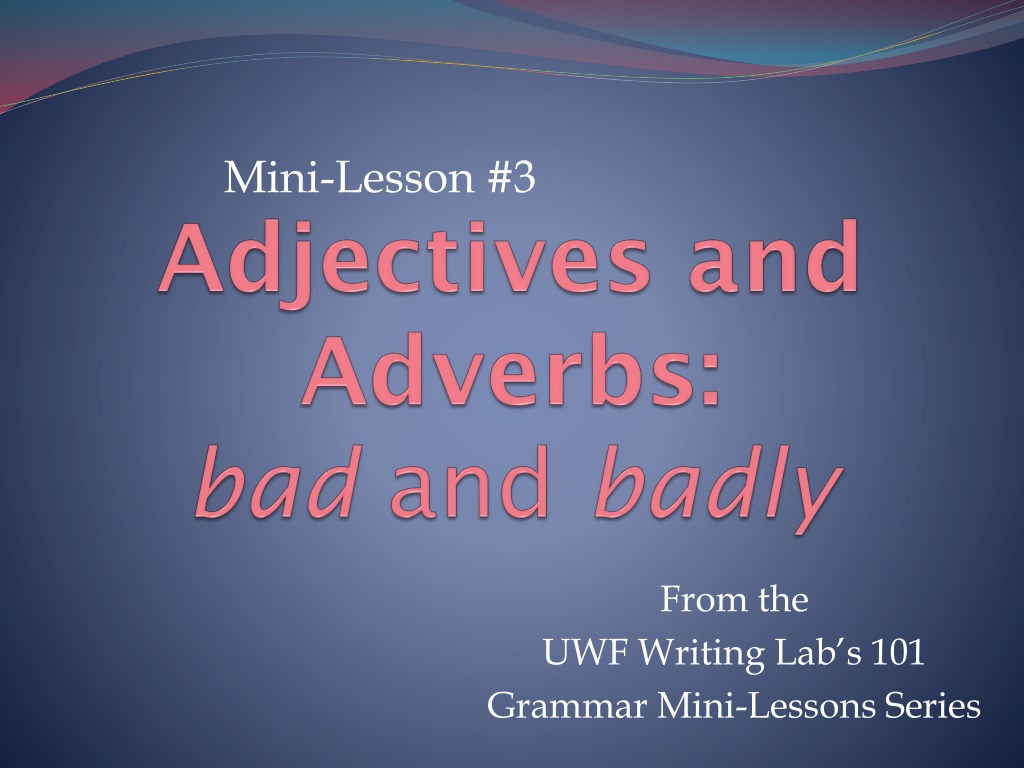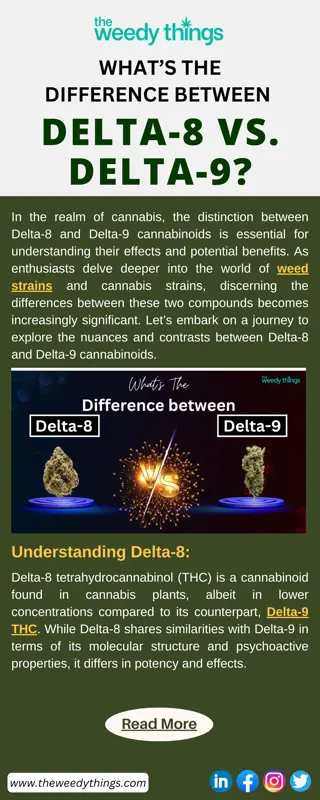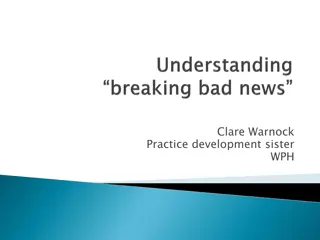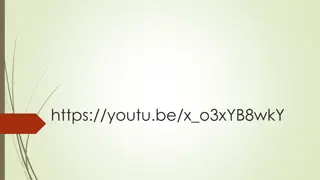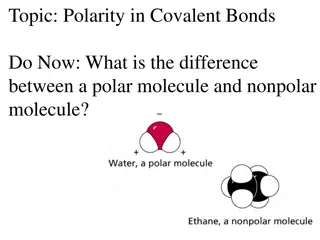Understanding the Difference Between "Bad" and "Badly
Learn the distinction between "bad" and "badly" in grammar. "Bad" is used as an adjective after sense or linking verbs, while "badly" is an adverb used after all other verbs. Examples and test sentences included to enhance understanding of correct usage.
Download Presentation

Please find below an Image/Link to download the presentation.
The content on the website is provided AS IS for your information and personal use only. It may not be sold, licensed, or shared on other websites without obtaining consent from the author. Download presentation by click this link. If you encounter any issues during the download, it is possible that the publisher has removed the file from their server.
E N D
Presentation Transcript
Mini-Lesson #3 From the UWF Writing Lab s 101 Grammar Mini-Lessons Series
Bad Bad is an adjective used after sense verbs or after linking verbs. Example: I feel bad about missing your graduation. The food tastes bad. The child is bad.
Badly Badly is an adverb used after all other verbs. Example: Tom writes badly. The chef cooks badly. The child acts badly.
Good Test Sentence He smells bad because he smells badly. (He has an odor because he has no sense of smell.)
Examples If the underdog wants to win badly enough, he can defeat an opponent who is physically superior. The instructor felt bad about giving the students a pop quiz covering a chapter that they were not assigned. Missing the train, Joe felt bad about not being at the game. Though the company did well during the war, things have been going badly ever since. The team felt bad about losing the swimming meet.
